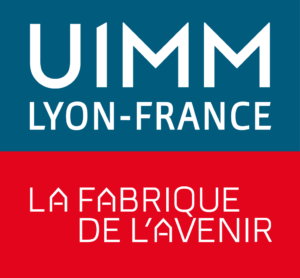Why call on a welding design office?
Because of its expertise, a welding design office is indispensable in the industrial sector. It is the guarantee of high-quality assemblies, essential to the manufacture of structures and components.
Whether in the aerospace, automotive, construction or energy sectors, demands in terms of safety and performance are higher than ever. To meet these major challenges, companies need to call on specific know-how!
The industrial design office is able to provide in-depth technical expertise, appropriate advice and innovative solutions. From welding machine design to project management.
But what exactly is an engineering design office? And what are the advantages of working with this consultancy? In this article, TRA-C industrie tells you more about the skills of mechanical and industrial design offices…

What is a welding design office?
The aim of the industrial design office is to plan, design, manufacture and test solutions and tools to optimise welding operations.
It is made up of technicians, draughtsmen, projectors, designers, PhD students, engineers and other welding specialists. These experts are skilled in mechanical studies, calculations, automation, robotics and project management. And all in the fine sheet metal, metallurgy, boiler making and iron working sectors.
The mechanical design engineering department analyses the specifications provided by the customer. It then develops the solution that meets the customer’s needs. It also assists with product design and the development of specific processes.
Once the solution has been validated, prototypes and tests are carried out to confirm the design before going into production. The small or medium-scale production phase then begins, followed by the first trials…
Technical expertise and specialist advice
The first advantage of using a design office specialising in welding is its advisory role. It can guide the customer towards the best options to ensure the success of its machine design or series production projects!
They have in-depth knowledge of the different welding processes, enabling them to propose the most appropriate solution depending on the materials, technical constraints and specifications of the project: friction stir welding, MIG or TIG welding, laser welding.
The industrial design office can also design robotic cells, machines or tools adapted to the customer’s needs and environment. These may include table-top machines for R&D, gantry machines for production, rail-mounted machines for large parts, etc.
Finally, the engineers and technicians are able to advise on good welding practices: cleaning and preparation of the parts to be welded, implementation of safety measures, training in the utilization of the machines.


Machine design and quality welding
Calling on a company with a welding design office is also a guarantee of high-quality assemblies and machines. Upstream of production, engineers and technicians design procedures to define precise welding parameters.
During production, they put in place rigorous controls to inspect welds and machines during manufacture. They monitor continuously, identify any defects (cracks, porosities and inclusions) and document the processes.
When necessary, they develop and implement corrective actions to prevent and rectify errors. They also ensure that operators are trained and have the necessary up-to-date certifications.
Finally, the engineering design office ensures that all welding operations and machines designed comply with current quality standards and their implementation: ISO 9001, ISO 9100, ISO 3834, EN 15085, etc.
Optimising costs and efficiency
Another advantage of having a welding design office is that you can benefit from the expertise of technicians and engineers in the assessment, planning and implementation of welding processes and the design of more efficient and economical machines.
It assesses the costs of materials and consumables to identify the least expensive options without compromising quality. It also analyses working times for each welding operation to optimise processes.
The industrial design office also favours high-performance technologies such as automation and robotisation to increase productivity. It plans welding sequences in advance to regulate workflows.
Finally, this entity aims to limit material waste and waste from consumables. It integrates stock management systems and encourages the recycling of residues in order to minimise environmental impact…


Managing complex welding projects
The welding design office is also able to manage complex projects with solutions tailored to each customer. It starts with detailed strategic planning, sets clear objectives and coordinates operators and other stakeholders.
Engineers use management tools to monitor progress, manage costs and adjust plans in real time. They continuously supervise the production and manufacture of machines to ensure that work is carried out in accordance with specifications.
Engineering design offices also invest in research and development to design tailor-made welding processes and machines. They adjust parameters according to customer requirements.
These structures offer integrated solutions that take into account all aspects of the project, from design to commissioning and maintenance. Finally, they can train operators to prepare them for the specific features of complex projects…
TRA-C industrie supports you with its welding design office
TRA-C industrie is an expert in mechanical and industrial design and the European leader in friction stir welding. Our welding design office is at your side for the manufacture of your robotic cells and special machines. We can also help you optimise your welding processes!
Our ability to plan, coordinate, supervise and adapt each stage of your project guarantees that your objectives will be achieved, while respecting your deadlines, technical constraints and budget.
Our 20 years of expertise enable us to meet the requirements of cutting-edge sectors such as aerospace, defence, transport and energy. We can support you throughout the entire life cycle of your products, from the study phase through to design, prototyping, toolmaking and automation of production resources.
Continuously trained, our engineers design intelligent, high-performance, high-quality solutions. They will help you reduce production costs while meeting the strict standards associated with your field of activity…










